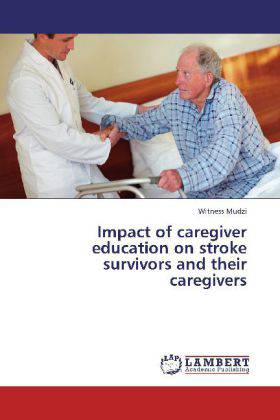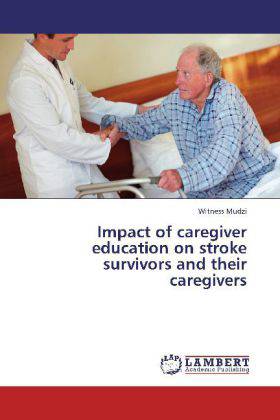
- Afhalen na 1 uur in een winkel met voorraad
- Gratis thuislevering in België vanaf € 30
- Ruim aanbod met 7 miljoen producten
- Afhalen na 1 uur in een winkel met voorraad
- Gratis thuislevering in België vanaf € 30
- Ruim aanbod met 7 miljoen producten
Zoeken
Impact of caregiver education on stroke survivors and their caregivers
Witness Mudzi
Paperback | Engels
€ 104,45
+ 208 punten
Omschrijving
Despite the improvements that have been made in health care over the years, stroke remains a serious public health problem in low, middle and high-income countries. Informal caregivers are particularly important in low resourced settings. The aim of the study was to establish the impact of caregiver education on stroke survivors and their carers. This was done using a randomised controlled trial with a total of 200 patients and their caregivers. From the study, the one-year case fatality was 38%. About 78% of the patients were functionally dependent at 12 months post discharge. Caregiver education had the effect of improving the BI scores by one and 0.7 at the three and 12 months follow ups respectively and improved patients EQ-5D scores by a factor of three at 12 months. The patient ability to socialise and participate in community issues post-stroke is currently poor due to poor functional ability levels, necessitating dependency on caregivers. Structured and individualised caregiver training has the effect of improving patients quality of life and can help reduce deaths among stroke survivors.
Specificaties
Betrokkenen
- Auteur(s):
- Uitgeverij:
Inhoud
- Aantal bladzijden:
- 376
- Taal:
- Engels
Eigenschappen
- Productcode (EAN):
- 9783843377690
- Verschijningsdatum:
- 10/01/2013
- Uitvoering:
- Paperback
- Afmetingen:
- 150 mm x 220 mm
- Gewicht:
- 582 g

Alleen bij Standaard Boekhandel
+ 208 punten op je klantenkaart van Standaard Boekhandel
Beoordelingen
We publiceren alleen reviews die voldoen aan de voorwaarden voor reviews. Bekijk onze voorwaarden voor reviews.







